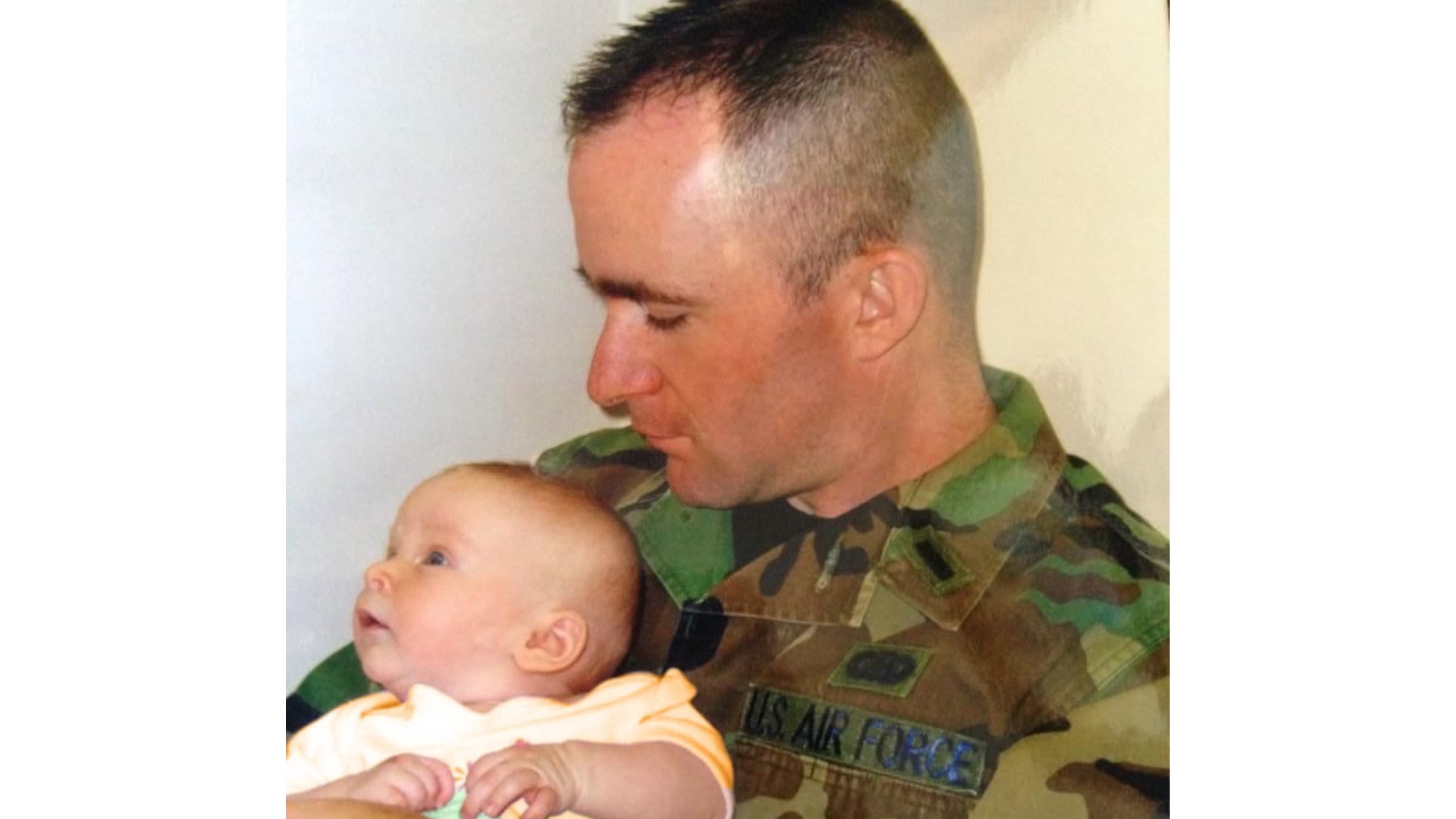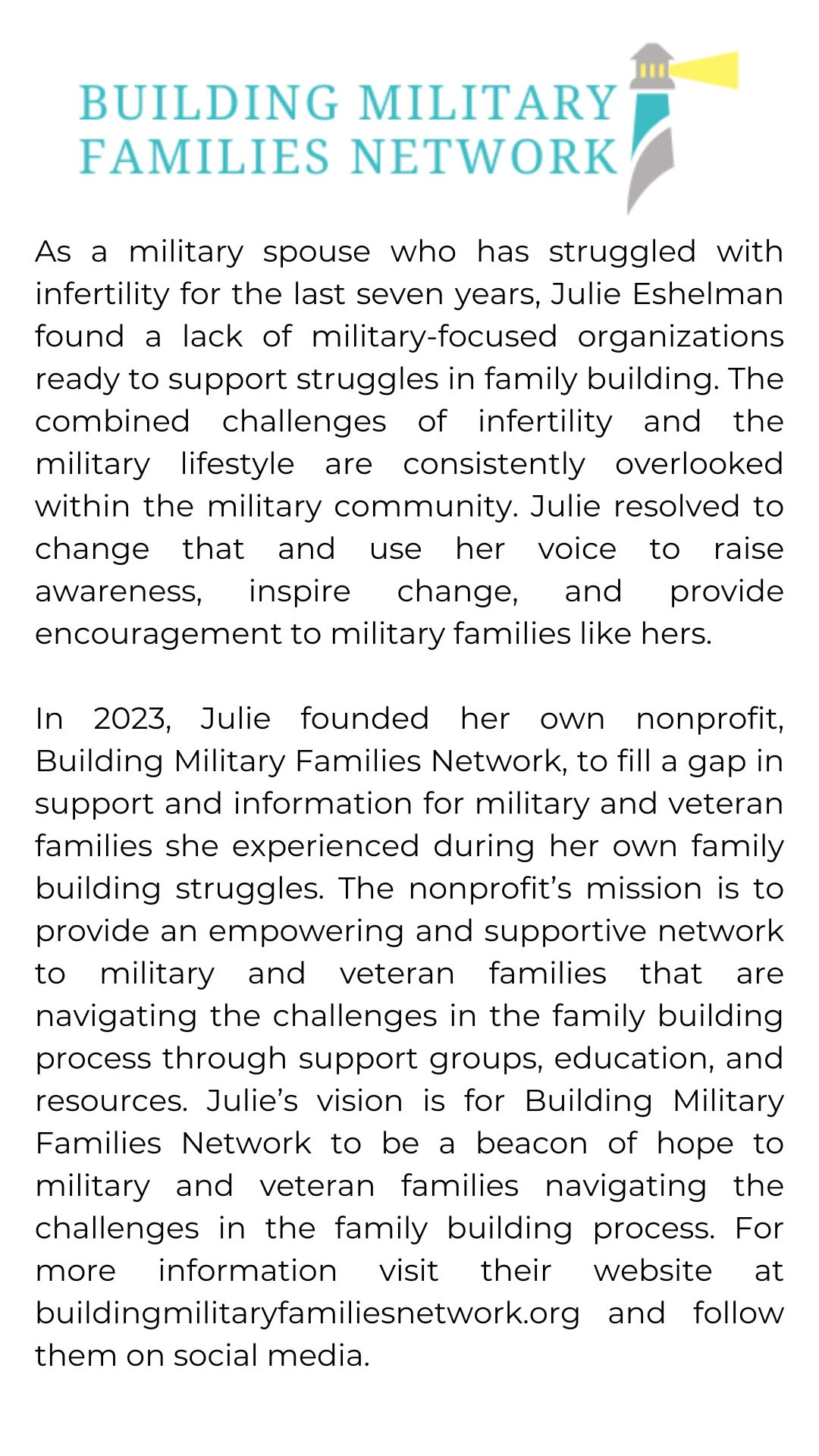Building Military Families

After 24 years of active duty service in the Air Force, my husband retired recently. Of course, as any chapter in your book closes, you spend a lot of time in active introspection – and I’m no exception!
There have been some amazing memories and places we have lived. We spent four glorious years in Germany, and three in England. We together moved 14 times, lived in 6 different states and 3 countries. He deployed 3 times (and we know we’re lucky he *only* deployed 3 times!) and were apart for countless TDY’s and trainings.

I’m pretty certain we have spent our wedding anniversary apart more times than together, as well as countless holidays, birthdays and other days of celebration.
We’ve learned that celebrating on a specific day is never the most important thing – the act of the celebration and being thankful for those you love is.
There have been some hard times. Dealing with loss of loved ones helplessly from afar is most notable. Another incredibly difficult issue: facing infertility as an active military family.
Our story ends up happy in the end and we know we are lucky and ever so grateful.
We now have our incredible kiddo here with us. They are 17, trying to figure out college and their future, and they are the light of our life.

But it was a truly difficult and dark road we traveled as we waited for them to join us.
A seven year road, in fact.


My husband enlisted in the Air Force when he was 26 years old (that was OLD at the time) and four years later went to Officer Training School and spent the remainder of his career as an officer. I point this out as I have seen multiple sides of the healthcare divide – both as an enlisted spouse and as an officer spouse, both junior and senior – and anyone who wants to say there isn’t a difference in how people are treated and what resources they have access to will need to come through me.
As fertility related treatments are not covered under Tricare (and what they do profess to cover for “diagnosis” is laughable), the financial divide is one that I think is very much overlooked.
While most military families in general don’t have the financial resources to pursue fertility treatments, the divide becomes even starker when you take into account military pay scales. Add to that fact most military families move every few years, which frequently leaves the non-military partner either unemployed or underemployed, causing a major financial burden – and definitely not leaving a lot extra left over for fertility treatments.
Now let’s take that hypothetical move into consideration. If a military family is lucky enough to have found a great fertility provider and pulled together the funds they need, what happens when they move? And remember, military families don’t get a say in where they are going and they definitely don’t get one in the timing on when. They now need to either start over from scratch with a new provider or travel back to their previous one, both of which add yet another financial and emotional burden.

As military families we frequently have yet another extra fertility complication that many don’t have – access to our partner!

The definition of infertility for a heteronormative couple under 35 is 12 months of unprotected intercourse correctly timed. What if we don’t have access to our partner? What if they are out in the field for 4 of 12 months – or even more frequently as often happens? How many times are people told to “keep trying” because the math on that timing isn’t continuous – and for many families it’s impossible to have an entire year together.
I’m not advocating that the military should disrupt the mission for family planning; but they absolutely should listen to concerns and not invalidate the math and medical concerns due to military operations.


Tricare has traditionally offered almost no benefits for infertility related services, but it’s not the only problem.
Tricare will gleefully point out that there are Military Treatment Facilities (MTFs) that offer infertility services, but what they don’t say out loud is that the waiting list to access them is years long, that most military members don’t live near enough for it to be a feasible option, and they won’t pay for travel to access that treatment. It becomes an absolute lottery of luck to be able to access. And if you hit that lottery, what happens when the military tells you to move on to your next duty station?
In 24 years of military service, not once did we live within a 12 hour drive of an MTF that offered fertility services.
Early in our fertility journey we were at a very rural base and only had access to the tiny base clinic. Once we realized there was an issue, we had to deal with a gatekeeper doctor to be allowed to access even the meager further services.
We were at a tiny base, had to see the doctor socially around base, and he gleefully spent our appointment asking: “Are you sure you are doing it right?”
This was the level of fertility healthcare that we received.
My husband was instructed to give his sperm sample in a public multi-stall bathroom. Yup, the kind where the doors don’t even go all the way to the floor.
The closest referral option for us to go to a Reproductive Endocrinologist was a four hour drive. Each way.
We each had to take a day off work and our travel expenses were our own. We showed up and were informed that only that consultation appointment would be covered, any further services would be completely out of pocket to us.
That was a journey ender for us financially and my husband was an officer by then – a few years prior I don’t think that we could have financially afforded to take the day off and pay for the gas to get to the appointment.
In addition to access to care, another of the biggest issues is continuity of care. Remember how many places I have lived (We’re pretty average in that regard – some people have moved FAR more often!)? Many of them not in the US for long stretches.
If you move an average of every 2-4 years, and fertility treatment can last for far longer than that, how can you continuously access the care that you need?
Military families spend their lives constantly starting anew.
Every time we move we need to establish with a new dentist, eye doctor, primary care doctor and then start to get referrals to any and all specialists – many of whom are often not taking new patients. When you are longing to grow your family, these disruptions to care are excruciating.

I don’t have all the solutions, but I do know that making our voices heard in support of military families and the extra challenges they face is immeasurably helpful, even on an emotional level.
Advocating for our military families on a Federal level for better health insurance benefits is absolutely crucial to helping our military know that they are not alone and we believe that the United States must do more to support them and their desire to grow their families as they choose.
Thankfully there are support organizations and advocacy groups that support military families in their quest to grow their family (like Resolve New England and the Building Military Families Network!).
In recognition of the unique challenges that military and veteran families can face when trying to grow their families, RNE and the Building Military Families Network are partnering to offer a new support space for service-connected families. Beginning in January 2024, the Building Military Families Group will meet monthly to provide a free, virtual place for people who are struggling to connect with an understanding community, build their support network, and share information and resources.
Learn more and register to attend!
Jennifer White wears many hats in the fertility sphere: survivor, advocate, podcaster, and professional. She loves helping people realize their dream of becoming parents and is honored to play a role in their intimate and life-enhancing journeys as well as advocating for access to care for all.
Jennifer has lived in every region of the country as well as Germany and England—and she’s been to every state in the U.S., with the exception of Alaska. She currently lives in Glastonbury, CT where she spends inordinate amounts of time in her garden. Most rewarding of all is her role as parent to her teenage kiddo and wife of 25 years to her recently retired Air Force husband.



